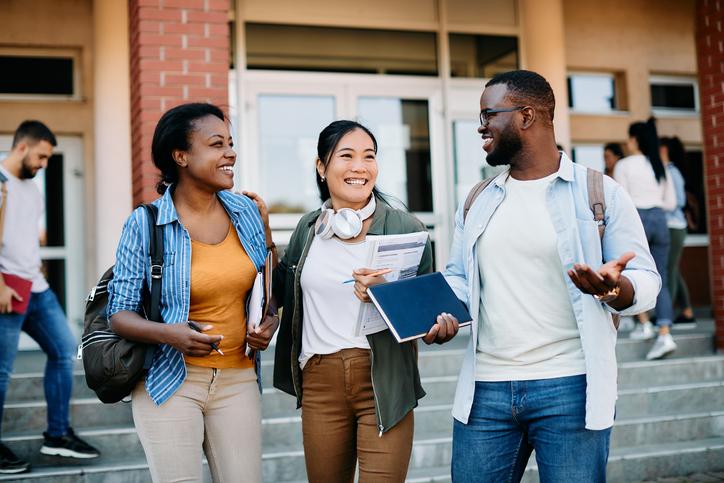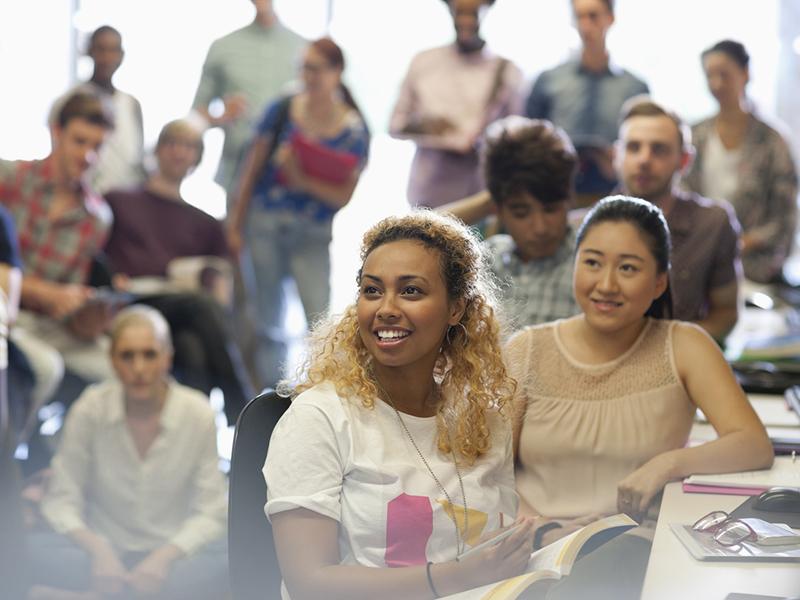When a student arrives at university, the transition is rarely just academic. It’s also emotional, social and deeply personal. So, supporting first-year students should begin with creating a culture of connection and care across the student experience.
This challenge can be approached with a cross-campus strategy grounded in what you might call structured serendipity – the intentional creation of opportunities for students to discover new ideas, identities and communities in safe, supported ways. Helping students feel welcome is not a one-and-done moment; it requires an interconnected system of nuanced support that extends beyond orientation.
Customising the first-year experience
Students’ first steps on campus may be building on summer orientation, including events, educational opportunities or resource fairs to help students establish community and belonging beyond the classroom. Orientation at Virginia Tech includes the Weeks of Welcome programme, which lasts from the first week of move-in through the first week of classes.
But what happens after social events end?
Students’ adjustment to college life also means understanding the expectations and demands specific to their major. If a sense of campus community is important, then feeling a close connection to the faculty and peers in their department is equally valuable for student success. To this end, our First-Year Experience programme (FYE) is embedded directly into each student’s major.
- Spotlight guide: A warm welcome for new students
- ‘Every faculty member should go on campus tours’
- Laying foundations: how to keep first-year students invested in their learning
While the principles that guide the FYE programme might be the same across the board, in execution, they look different in each major. So, a student entering the College of Business has an FYE course whose focus includes what it means to belong in the business world. They might run real-world simulations, partner with local organisations or manage small investment projects to lay the foundation for a future in that career. Meanwhile, students in the humanities might focus on cultivating disciplinary perspectives, exploring career paths such as law or public service, and building foundational research and critical thinking skills.
This tailored approach, although administratively more complex, makes FYE feel relevant and welcoming to students from day one.
Whole-campus approach to fostering student success
Making students feel welcome isn’t just about course design, and it doesn’t begin when students arrive.
Insight into supporting student success can come from instructors, academic advisers, residence life staff, librarians, undergraduate research faculty, career services, student and faculty wellness, centres for teaching excellence and even peer mentors. Our whole-campus approach incorporates an on-campus conference to support faculty, administrators, staff and advisers. We gather each May to learn and share best practices in and out of the classroom. A broad coalition collaborates to design learning-centred courses and opportunities as well as ways to introduce students to resources before they’re in crisis – such as tutoring centres or mental health services – rather than waiting until a poor exam result or emotional burnout to act.
Our approach also makes room for transfer students, who often arrive with less fanfare than traditional first-years but face equally disorienting transitions. Tailored resources (such as admissions, FYE courses, a living learning programme and advising) ensure they feel seen and supported as they integrate into a new academic and social culture.
Centring community and belonging as a foundation to student retention
What we know is that when students feel they belong – in the university, in their major, and in their future profession – they are more likely to stay, to grow and to succeed. That sense of community doesn’t emerge from a single orientation event or lecture. It grows from the cumulative impact of small, intentional moments: a professor remembering a name, a residence hall leader checking in after a difficult week, an adviser recognising early academic warning signs, or a class discussion that invites vulnerability and self-reflection. This takes collaboration from student affairs, residence, academic colleges, instructors and advisers.
We’ve also redesigned our general education system to catalyse this connection more deeply. Going beyond standalone “checklist” requirements, students can fulfil their general education through pathways minors, which are thematic, cross-disciplinary programmes. These programmes give students a sense of narrative coherence, allowing them to explore complex global issues while fulfilling core academic requirements. Some even include civic engagement or study abroad.
Students today – and their families – are more discerning than ever. They want assurance that every credit, every course, every semester is meaningful. But meaning isn’t just found in majors or exams. It’s found in the relationships students build, the identities they explore, and the ways they come to see themselves as capable, valued members of a community.
As higher education adapts to new demands, it takes the whole institution to support student belonging and well-being, and to build a foundation for academic success. We must be willing to partner and learn and grow to ensure that happens in and outside the classroom from before students arrive to the time they graduate.
The goal isn’t simply to retain students, it’s to help them flourish. This is a universal challenge.
Stephen Biscotte is assistant vice-provost for undergraduate education (general education and operations) at Virginia Tech. He leads the Pathways General Education and First-Year Experiences programme and teaches graduate-level courses in educational psychology.
If you would like advice and insight from academics and university staff delivered direct to your inbox each week, sign up for the Campus newsletter.




comment